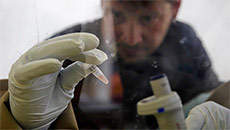Daily intake of sugar should make up no more than three percent of total energy intake and its reduction in consumption could lead to decrease in tooth decay, finds a new research.
"Tooth decay is a serious problem worldwide and reducing sugar intake makes a huge difference," said Aubrey Sheiham, emeritus professor at the University College London' department of epidemiology and public health.
The study analysed the effect of sugars on dental caries - also known as tooth decay.
Researchers from the University College London and London School of Hygiene and Tropical Medicine showed that sugars are the only cause of tooth decay in children and adults.
"Data from Japan were particularly revealing, as the population had no access to sugar during or shortly after the Second World War. We found that decay was hugely reduced during this time, but then increased as they began to import sugar again," Sheiham added.
Researchers found that the incidence of tooth decay was much higher in adults than children and increased dramatically with any sugar consumption above 0 percent of energy.
Even in children, an increase from near-zero sugar to five percent of energy doubles the prevalence of decay and continues to rise as sugar intake increases.
"We need to make sure that use of fruit juices and the concept of sugar-containing treats for children are no longer promoted and explicitly seen as unhelpful," asserted Philip James, a professor of Nutrition at London School of Hygiene & Tropical Medicine.
Tooth decay is the most common non-communicable disease in the world, affecting 60-90 percent of school-age children and the vast majority of adults.
The study appeared in the journal BMC Public Health.
==============================





